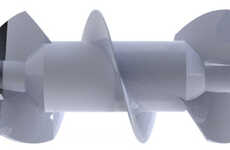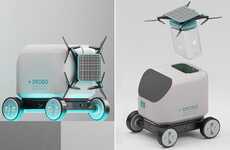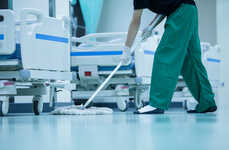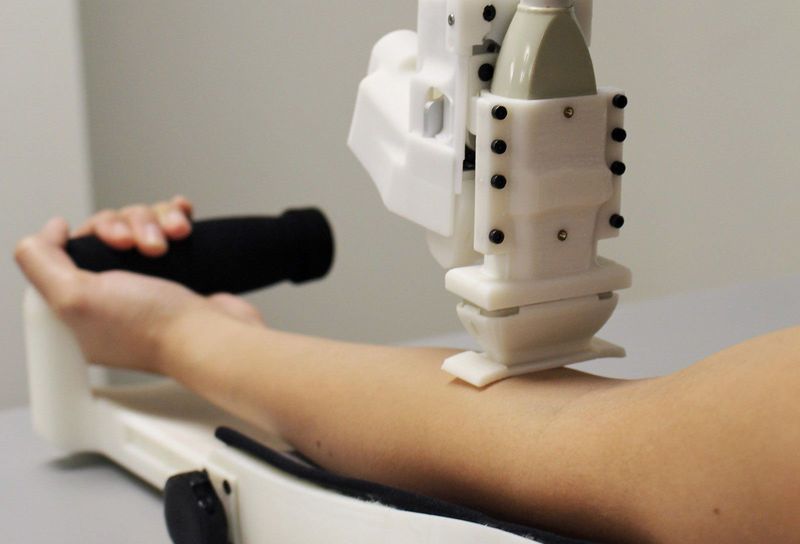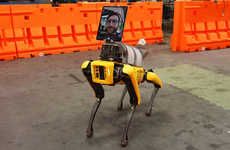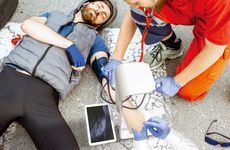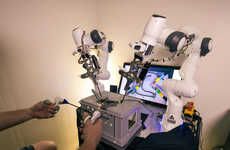
Researchers Designed a Robot to Take Blood Samples from Patients
Daniel Johnson — February 10, 2020 — Tech
References: news.rutgers.edu & engadget
Researchers from Rutgers, and Mount Sinai Hospital, recently developed a blood-drawing robot that can take patients blood more effectively than human medical professionals. The blood-drawing robot can be used for patients who do not have easily visible veins, in order to reduce the risk infections or thrombosis. Additionally, the machine can streamline the blood drawing process and frees up time for medical professionals to complete other tasks.
The robot was able to take blood samples at a success rate of 87%, where clinicians will be unsuccessful at a rate between 27-60% for patients with veins that are difficult to find. The robot is currently only a prototype and the design could be improved in the future.
Josh Leipheimer, the lead author, spoke about the machine, "A device like ours could help clinicians get blood samples quickly, safely and reliably, preventing unnecessary complications and pain in patients from multiple needle insertion attempts."
Image Credit: Rutgers
The robot was able to take blood samples at a success rate of 87%, where clinicians will be unsuccessful at a rate between 27-60% for patients with veins that are difficult to find. The robot is currently only a prototype and the design could be improved in the future.
Josh Leipheimer, the lead author, spoke about the machine, "A device like ours could help clinicians get blood samples quickly, safely and reliably, preventing unnecessary complications and pain in patients from multiple needle insertion attempts."
Image Credit: Rutgers
Trend Themes
1. Blood-drawing Robot - Opportunity for further development of the blood-drawing robot technology for medical professionals to help patients who have difficult veins for blood tests or patients who need frequent blood work.
2. Medical Robotics - Opportunity for the development of other medical robots for conducting surgeries and other medical procedures to improve overall patient outcomes and optimize resource allocation of medical professionals.
3. Patient Care Automation - Opportunity for automation of various patient care activities such as blood tests, injections and other non-surgical procedures for the optimization of medical professionals' time and to improve overall patient experience.
Industry Implications
1. Healthcare - The healthcare industry can benefit from further research and development of medical robotics and patient care automation for optimizing patient care delivery and enhancing overall patient outcomes.
2. Technology - The technology industry can invest in the development of medical robots and automation systems to improve medical processes and procedures to promote overall patient well-being and comfort.
3. Manufacturing - Opportunity for the manufacturing industry to expand production of medical robots and automation systems to meet rapidly growing demands in the healthcare industry for technology-driven patient care solutions.
2.4
Score
Popularity
Activity
Freshness


